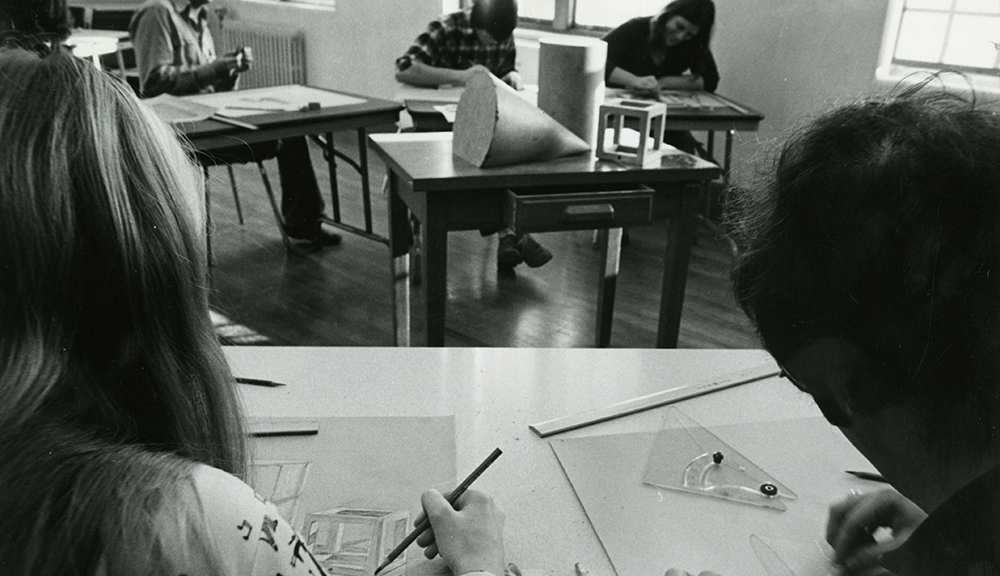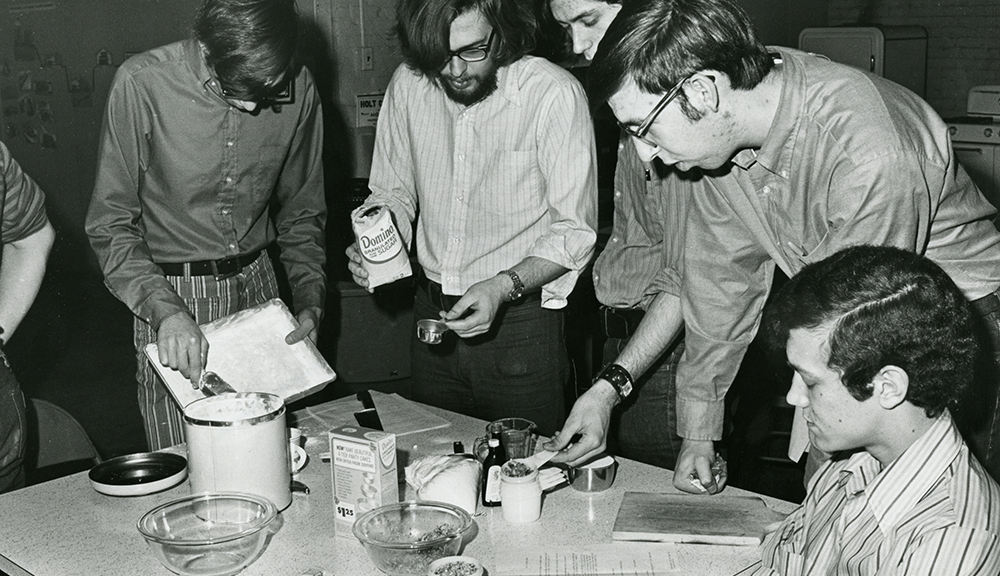The WPI Plan, the Institute’s groundbreaking approach to undergraduate education, has been in a state of flux almost from the moment the faculty voted to approve it five decades ago, in May 1970. Parts of the original program, most notably the live-or-die Competency Exam, have fallen by the wayside, while exciting new facets—including the Global Projects Program and the Great Problems Seminar— have been added along the way.
So far, only one discarded Plan component has managed to make a comeback, albeit in pared-down form. Conceived by LaunchPad, a student-led organization that seeks to foster the entrepreneurial mindset at WPI, in conjunction with the Office of Undergraduate Studies, WinterSession made its debut in January 2017. This program is currently run by the Office of Innovation and Entrepreneurship, which this year will offer more than 30 programs organized into three tracks: Fun and Food, Arts and Making, and Innovation and Entrepreneurship. An additional dedicated track, called Mission Quest, is described as “a three-day journey to discover and design your mission so it aligns with your career choices.”
The three-day learning smorgasbord, which runs Jan. 12 to Jan. 14 this year, was inspired by Intercession, the first major element of the Plan to go online.

Students learn mechanical drawing, which was useful for their studies and projects
In its final report to the faculty in April 1970, the Faculty Planning Committee, which had spent two years crafting the program that became known as the WPI Plan, called for a three-week academic period between B and C Terms that would be devoted to short courses, seminars, workshops, and field trips. Some of the courses would cover material and skills relevant to specific academic programs (and for which WPI students could receive credit). In fact, it was expected that students could actually shorten the time needed to earn a degree by regularly participating in Intersession.
But the goals for Intersession went far beyond academics. Bill Grogan, WPI’s first dean of undergraduate studies who helped shape the Plan as a member of the Faculty Planning Committee, said Intersession was in harmony with WPI’s goal to “develop in students a depth of personality and life interests.” It was also intended to break down the barriers between faculty members and students by allowing the faculty to get to know students as individuals and for students to see the faculty “as people with real and exciting interests.”
After the Plan was approved, the Institute set an ambitious schedule for its implementation, which called for a pioneering group of students to begin fulfilling their degree requirement under the Plan in 1971 and the first Intersession to be organized in January 1972. There would be three week-long sessions, with most courses running from Tuesday to Thursday to leave the long weekends free for recreation, social activities, and required reading for upcoming courses.
The catalog for the first Intersession listed 146 courses to be taught by about 97 percent of the WPI faculty along with more than 200 off-campus instructors and lecturers. They covered a remarkably broad range of topics, including the fundamentals of fluidics, skiing for beginners, modern dance, fiction into films, celestial navigation, and rifle marksmanship. Students could learn to build their own harpsichord, program in BASIC, or grind mirrors for their own telescopes.

Bachelor Cooking class, 1972
Engineering professors Ray Hagglund and Jim Demetry taught the basics of carpentry, plumbing, and wiring by having students build an actual wall section for a house. A group of hardy students went on a four-day expedition to the White Mountains, where they endured high winds and sub-zero temperatures while lugging 50-pound packs up multiple peaks and camping under the stars. Others set sail on a two-week oceanographic cruise to Puerto Rico. And some ventured no farther than a local supermarket to learn to shop for the ingredients they’d turn into French bread and chocolate mousse in a course titled “Bachelor Cooking: From Survival to Gourmet.”
In a course called “The Tudor Interlude,” students staged a production of “The Play of the Weather,” a gentle satire on the reign of King Henry VIII—complete with set, lights, and costumes—in the Great Hall of Higgins House. For a course on life in a commune, students, including John Coghlin, Class of 1911, visited with the founder and residents of the Brotherhood of the Spirit Commune in Warwick, Mass., set in a homemade structure that WPI Journal writer Ruth Trask described as “rustic and, sanitarily speaking, downright primitive.”
“The emphasis of the Intersession material,” the student newspaper Tech News noted in the fall of 1971, “is that it provides something fascinating and different from the usual routine of class work.” The initial line-up of courses certainly met that test. But would anyone show up? Skeptics predicted that students would rather spend the winter break in Fort Lauderdale than in a classroom, but, in fact, more than 70 percent of all undergraduates participated, along with 72 graduate students, 59 alumni, 17 students from other local colleges, and numerous faculty and staff members.
"Happy" - Google News
January 11, 2020 at 06:02AM
https://ift.tt/37Sc8ui
WPI Plan Stories: The Brief, Happy Life of Intersession - WPI News
"Happy" - Google News
https://ift.tt/2VPek0I
Shoes Man Tutorial
Pos News Update
Meme Update
Korean Entertainment News
Japan News Update
No comments:
Post a Comment